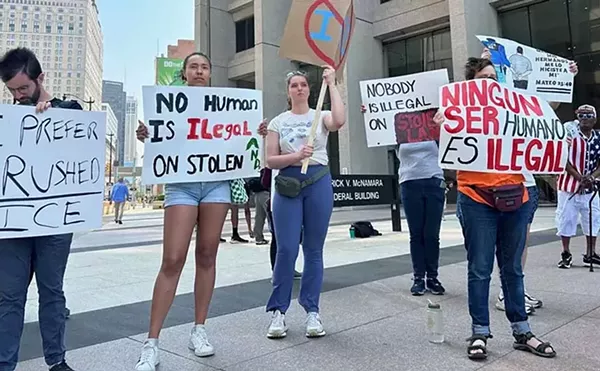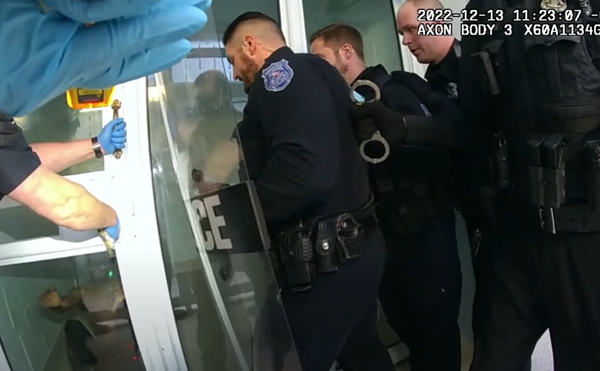Rep. Stevens to introduce bill to block Trump from deploying troops without state approval
The proposed legislation follows Trump’s controversial decision to send U.S. Marines to Los Angeles over the objections of California officials

Audio By Carbonatix
[
{
"name": "GPT - Leaderboard - Inline - Content",
"component": "35519556",
"insertPoint": "5th",
"startingPoint": "3",
"requiredCountToDisplay": "3",
"maxInsertions": 100,
"adList": [
{
"adPreset": "LeaderboardInline"
}
]
}
]

U.S. Rep. Haley Stevens said she plans to introduce legislation next week that would prevent President Donald Trump from unilaterally deploying active-duty military forces within the United States without approval from state or territorial leaders.
The Michigan Democrat announced the “Stop Trump’s Abuse of Power Act” on Monday in response to the Trump administration’s deployment of U.S. Marines and thousands of federalized National Guard troops to Los Angeles earlier this month during protests tied to the president’s immigration crackdown. California Gov. Gavin Newsom and other local officials objected to the deployment, saying it heightened tensions and undermined public safety.
“President Trump has shown a disturbing pattern of disregard for the Constitution and due process,” Stevens, who is running for U.S. Senate, said in a written statement. “This month, he made it harder for local law enforcement to do their jobs in California by unlawfully deploying our military on U.S. soil – further escalating tension and violence. We must stand up to Donald Trump’s chaos and destruction, which is why I am introducing this legislation to limit his powers and make sure he cannot deploy troops on U.S. soil for his political gain.”
The bill would amend the Insurrection Act of 1807 to prohibit the president from deploying active-duty forces within a state or territory unless the action is specifically requested by the state’s governor or territorial executive. The proposed changes would apply specifically to situations involving peaceful protests and public demonstrations.
The Trump administration’s decision to send federal troops to Los Angeles marked a rare use of presidential power and prompted legal challenges from the state of California. A federal district judge initially sided with the state, but the Ninth Circuit Court of Appeals later reversed the ruling, allowing the deployment to proceed while noting that the court had not ruled on the legality of the troops’ activities.
Trump celebrated the appeals court decision as a “big win,” while Newsom vowed to continue fighting what he called an abuse of power.
Stevens said her legislation aims to close what she sees as a dangerous loophole that allows presidents to deploy the military domestically for political purposes.
“We are a nation of laws and it’s about time the President begins to follow them,” she said.






